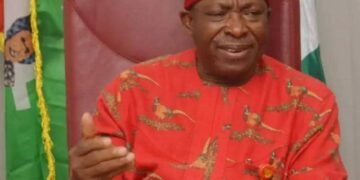By Charles Igwe
Bauchi State Governor Bala Mohammed has criticized President Bola Tinubu’s recent nationwide broadcast, labeling it an “empty statement” that, according to him, has exacerbated the hunger protests sweeping the country.
Governor Mohammed made these comments following an emergency security meeting at the Bauchi State Government House on Monday night. He expressed discontent with the President’s address, stating, “I am not the spokesperson for the President, but his speech was very empty and has only escalated the situation.”
In his Sunday broadcast, President Tinubu appealed to citizens and youth to end the hunger protests that began on August 1. The President explained that the removal of the fuel subsidy and the devaluation of the naira were necessary to prevent the nation’s economy from collapsing. He also outlined various initiatives his administration has undertaken, including financial support to governors to alleviate the effects of economic hardship.
Governor Mohammed contended that the President’s address failed to address the concerns of the state governors and did not demonstrate adequate sympathy toward the protesters. “The President should have consulted with us before making the broadcast,” Mohammed said. “We listen to our local government chairmen, and the President should do the same.”
Mohammed emphasized that while his administration supports the protesters’ right to express dissatisfaction, it opposes violence and the destruction of property. He called for more concrete actions to address the widespread hunger, anger, and poverty in the country.
In response, the National Director of Publicity for the ruling All Progressives Congress (APC), Bala Ibrahim, dismissed Mohammed’s claims. Ibrahim argued that President Tinubu has met with various leaders, including governors, traditional rulers, and sociocultural leaders, and has communicated the need for accountability. He accused state governors of mismanaging funds and failing to deliver on development promises, thus shifting the blame onto the President.
Ibrahim asserted, “The current administration has provided unprecedented financial support to state governments. Instead of blaming the President, governors should focus on utilizing these resources effectively and delivering on their democratic promises.”
He criticized the practice of politicizing poverty and urged governors to demonstrate responsible management of resources rather than placing blame on the federal government.









































